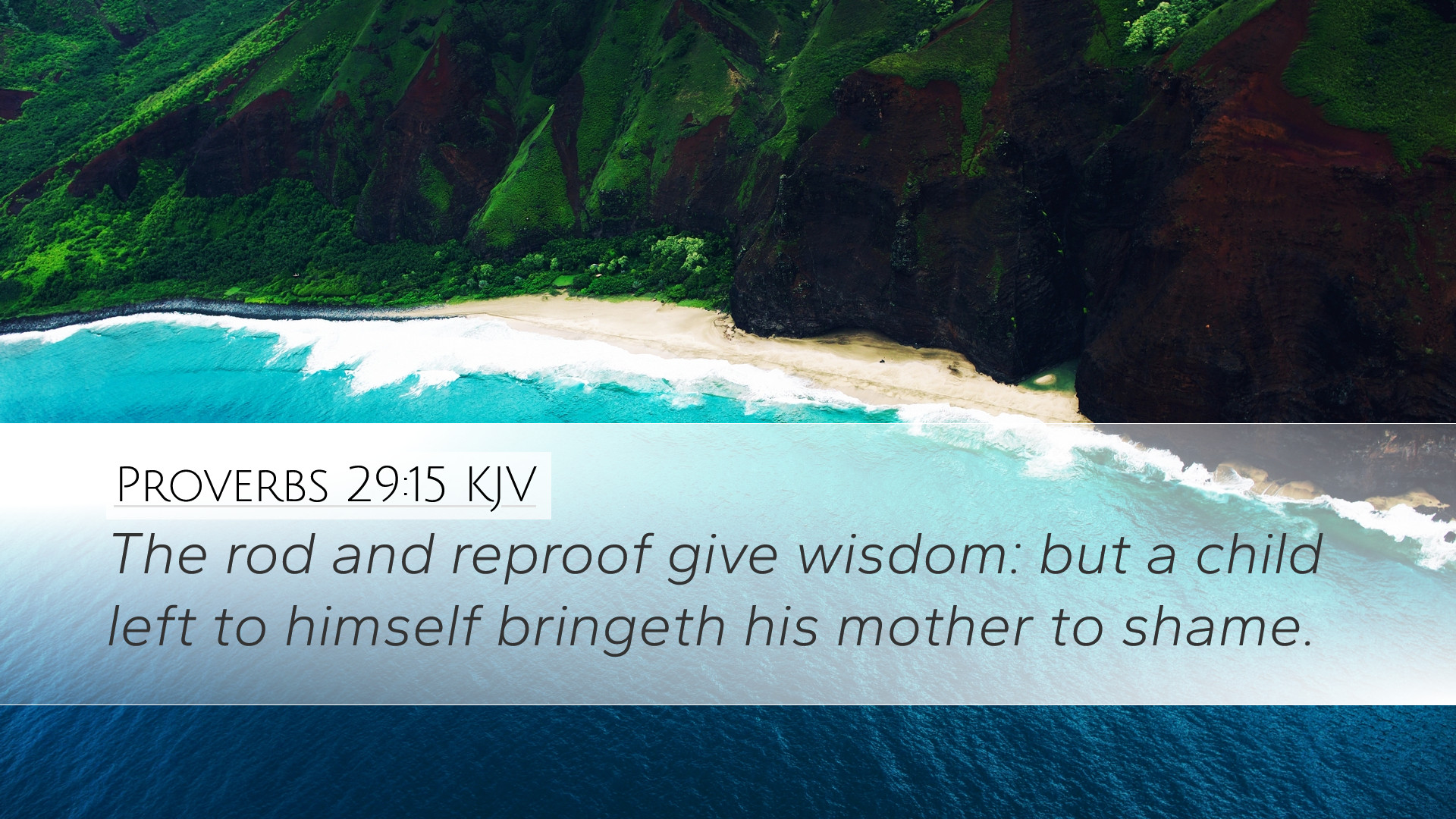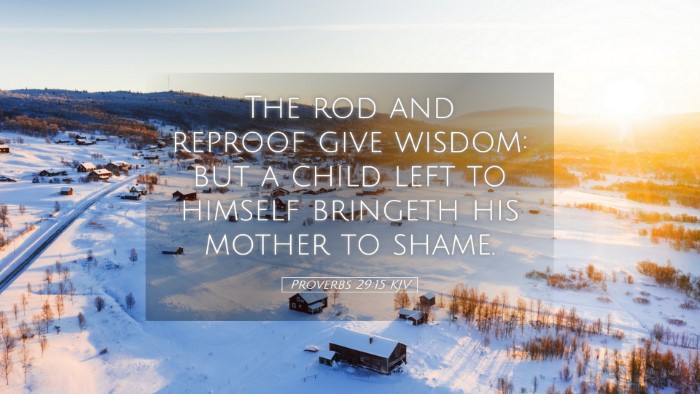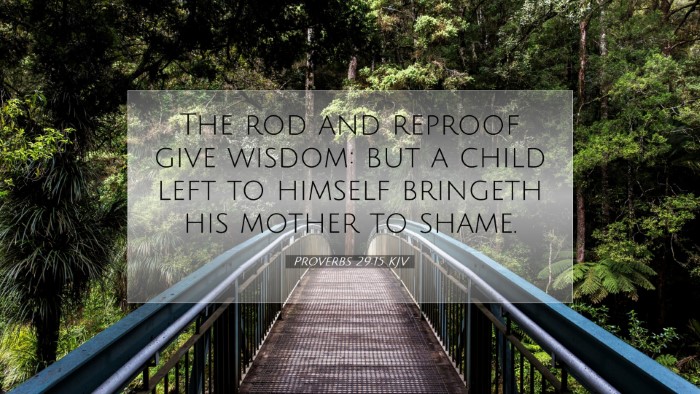Commentary on Proverbs 29:15
Verse: Proverbs 29:15
"The rod and reproof give wisdom: but a child left to himself bringeth his mother to shame."
Contextual Overview
Proverbs provides a wealth of wisdom, particularly in the realm of parental guidance and the moral education of children. This specific verse directly addresses the contrasting outcomes of proper discipline versus a lack of oversight in raising children.
Exegesis of the Verse
This verse highlights two primary elements of child rearing: the application of discipline ("the rod and reproof") and the consequences of negligence ("a child left to himself").
The Role of Discipline
As stated in the verse, "The rod and reproof give wisdom." Here, the "rod" symbolizes discipline, while "reproof" refers to corrective criticism and guidance. This compendium underscores several key points:
-
Discipline as Instruction: Matthew Henry emphasizes that discipline is not merely punitive; it is instructional. Through correction, children learn discernment and gain wisdom that guides their future decisions.
-
Affectionate Correction: Albert Barnes notes that correction, when delivered with love and care, can lead to a deeper understanding of right and wrong. This creates an environment where wisdom can flourish.
-
Moderation in Discipline: Adam Clarke warns against excessive punishment, advocating instead for balanced discipline that nurtures rather than alienates the child. The goal is growth in moral and intellectual capacities, not merely compliance.
The Consequences of Neglect
The latter part of the verse, "but a child left to himself bringeth his mother to shame," cautions against the dangers of neglect in child-rearing:
-
Impact of Inattention: An unattended child is prone to moral failure, leading to public embarrassment for parents. Proverbs repeatedly asserts that parental responsibility bears significant weight on the child's development.
-
Broader Implications: Barnes points out that ignoring a child's moral and ethical education can result not only in shame for the individual family but can also extend to societal degradation, as the family unit is foundational to community health.
Theological Reflections
This verse provides rich theological reflections on the nature of God’s discipline and correction:
-
God as a Parent: The nature of parent-child relationships in the Bible often serves as an analogy for God's relationship with His people. Just as earthly parents are called to correct their children, God’s discipline reflects His love and commitment to our growth.
-
The Need for Guidance: The Proverbs depict human beings as often prone to folly unless guided by divine wisdom. Therefore, parental correction mirrors God’s call to rely on His guidance through His Word.
Practical Applications
For pastors, theologians, and students alike, this verse offers important lessons in practical applications:
-
Encouragement of Disciplined Teaching: Pastoral teachings that incorporate the necessity of discipline can influence church family dynamics positively. It urges congregations to reflect on how they educate their children in both home and church environments.
-
Support for Parents: The church can play a pivotal role in providing resources and support systems for parents navigating the complexities of child upbringing. Workshops, classes, and counseling can aid them in fulfilling their biblical calling.
-
Advocacy for a Holistic Approach: The integration of discipline, love, and moral education contributes to a healthy ecclesiastical community. This encourages mentee-mentor relationships within the church to facilitate learning and growth for all ages.
Conclusion
Proverbs 29:15 serves as a profound reminder of the importance of discipline for the development of wisdom in children. The careful balance of love and correction results in a child who can navigate the complexities of life, ultimately leading to satisfaction for parents and society at large. As believers, adhering to these principles not only fulfills biblical commands but also enriches the collective moral fabric of our communities.


